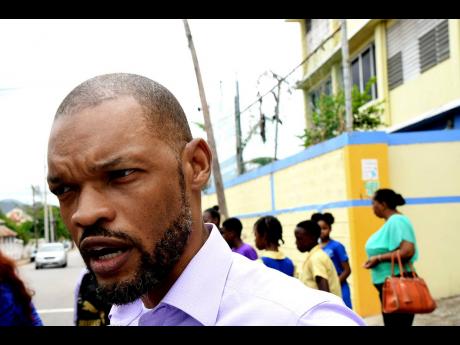Pryce advocates for national policy on disaster mitigation, solar energy
Former Member of Parliament (MP) Raymond Pryce has called for a comprehensive policy framework to address disaster mitigation and reduce Jamaica’s dependence on imported fossil fuels by transitioning to solar energy.
Pryce suggests that a pilot project in Portmore Pines, St Catherine East Central, could generate sufficient empirical data within 12 months, forming the basis for a national framework for residential solar expansion.
Speaking with The Gleaner, Pryce, an environmental advocate, and current People’s National Party representative for St Catherine East Central, emphasised the need for a special initiative at every level of government in Jamaica.
“Each municipal corporation should convene a special sitting to focus on their capacity to respond to emerging risks and additional risks presented by hurricanes and other weather conditions,” he said.
He proposed a similar process at the parliamentary level, where all 63 MPs would be called to a special sitting of the House.
“We need to look at how we construct our national budget and appreciate the immediate and additional risks and hazards that arise from weather conditions like Hurricane Beryl,” Pryce stated.
Pryce stressed that issues associated with the aftermath of hurricanes and weather systems should not be addressed in a reactive manner.
“We have to redesign the way we budget the country’s resources, the way the state apparatus operates. We also have to be willing to make some transformative decisions, such as fast-tracking the diversification of the electric grid and pivoting away from fossil fuels to renewables.”
Highlighting the urgent need for action, Pryce noted, “Much of what I covered regarding my environmental studies and climate change mitigation, which was speculative then, is now settled science. Fossil fuels are the primary source of carbon emissions, which warm the atmosphere and exacerbate a worsening situation with respect to heatwaves, more frequent and adverse weather events, and changing traditional climate patterns.”
Serious about solar
He pointed to solar energy as the quickest and most effective route to mitigation.
“Jamaica has to become serious in measurable ways to make the use of solar energy more widespread by facilitating access to solar generation at the household level,” he said.
Addressing the financial struggles faced by many retired residents in communities such as Caymanas Gardens, Hamilton Gardens, Cedar Grove, Southboro, Morris Meadows, and Meadowvale in St Catherine East Central, Pryce explained, “Many of the residents and homeowners are retired. They live on fixed pensions and, for many, are at a point in their lives where they can no longer identify any additional sources of income. We are speaking of retired police officers, firefighters, teachers, and other public and civil servants who have not yet completed paying off their mortgages.”
Pryce argued that the technology is more effective and affordable today, requiring only changes in duty regime and incentivising private sector partnerships, which are achievable with the right leadership.
He emphasised that Jamaica’s commitments under the Paris Agreement of COP21 are more easily achieved with decisive actions by visionary leaders.
“In the present scenario, there isn’t any visionary leadership in the sector,” Pryce lamented. “Even recently, stakeholders in the sector complained bitterly about the absence of a policy framework that could cause more businesses and industries to incorporate solar energy within their business model. There are absolutely no properly thought through frameworks for residential solar on a wide scale in Jamaica today.”

